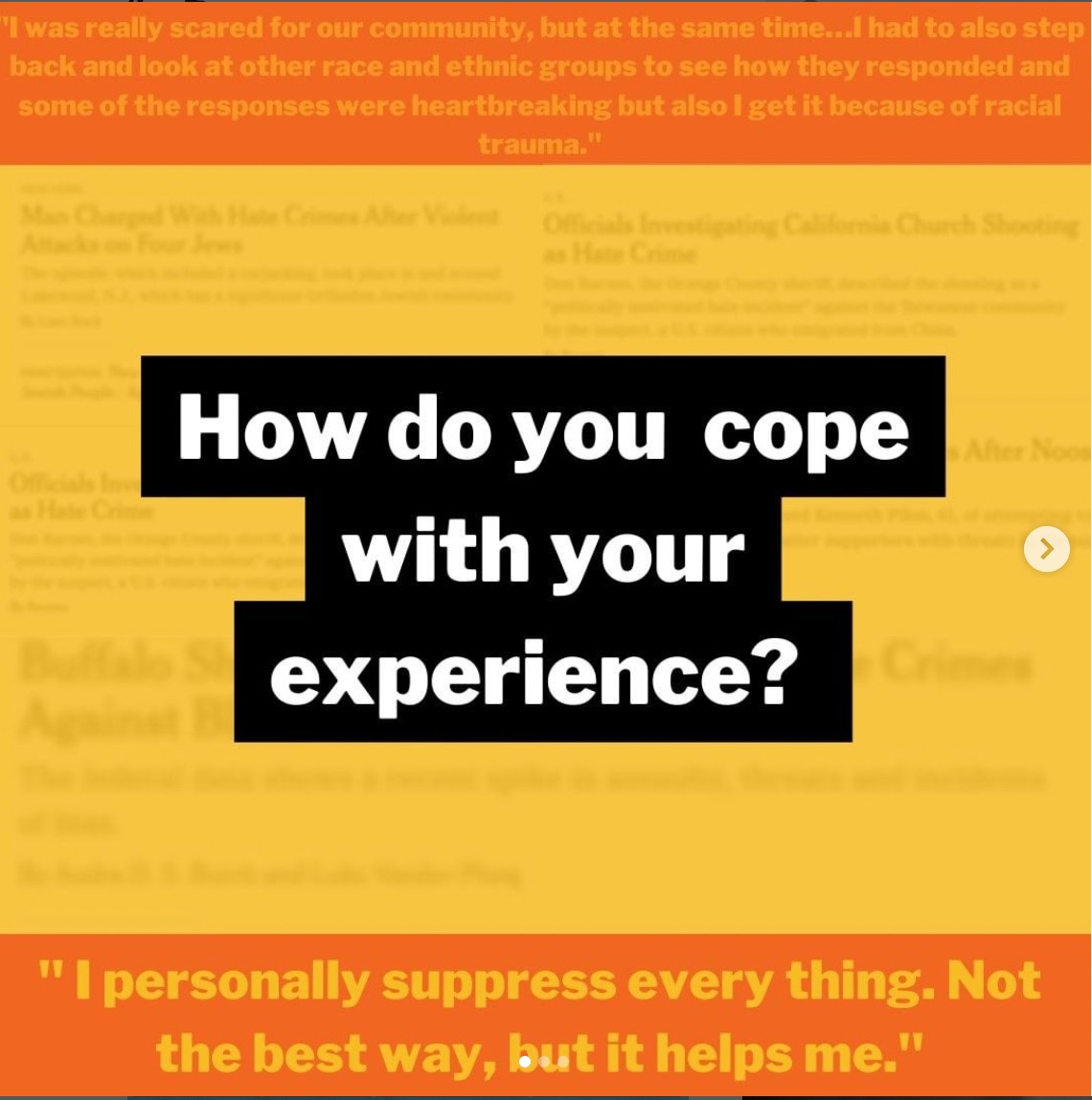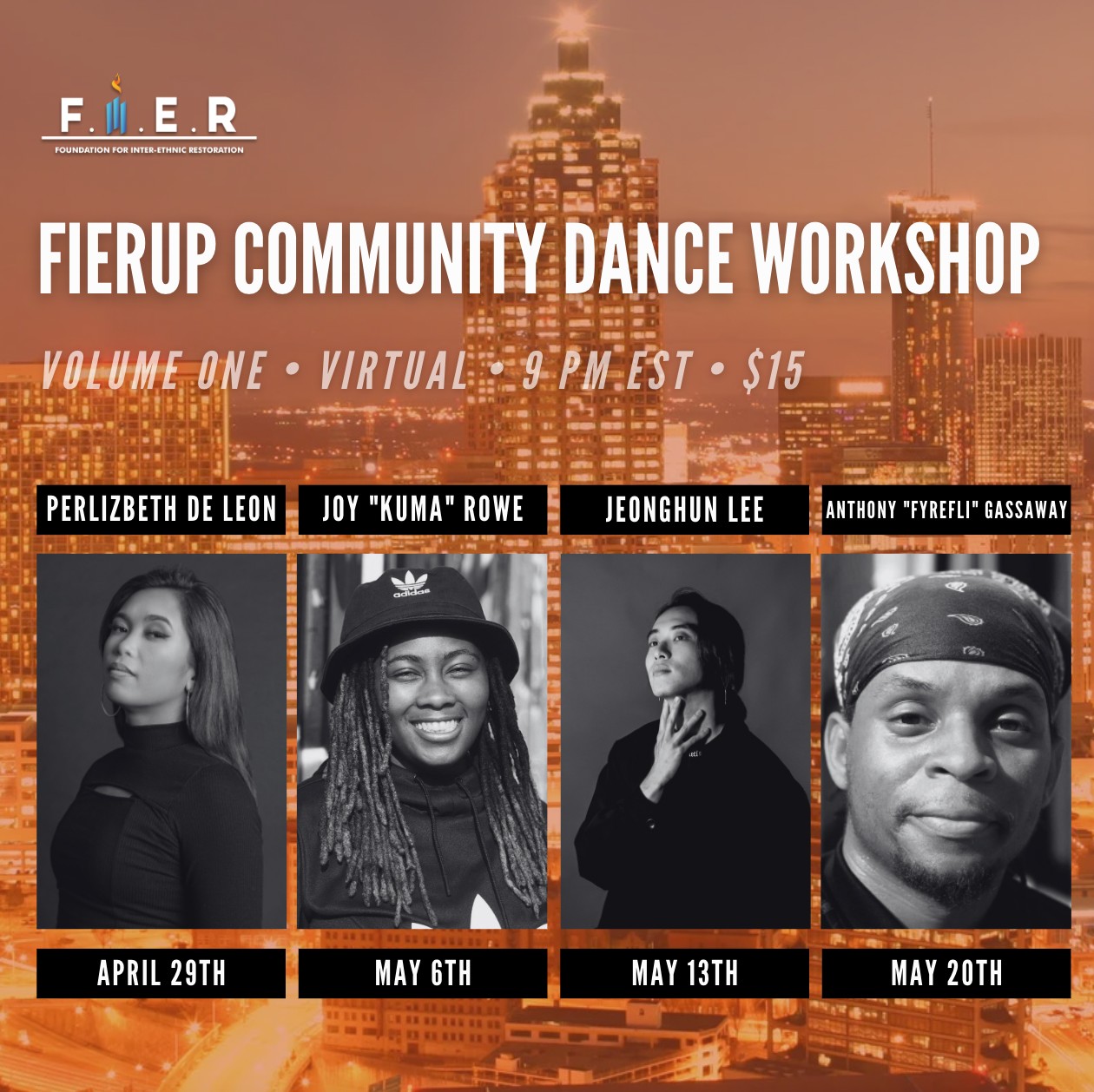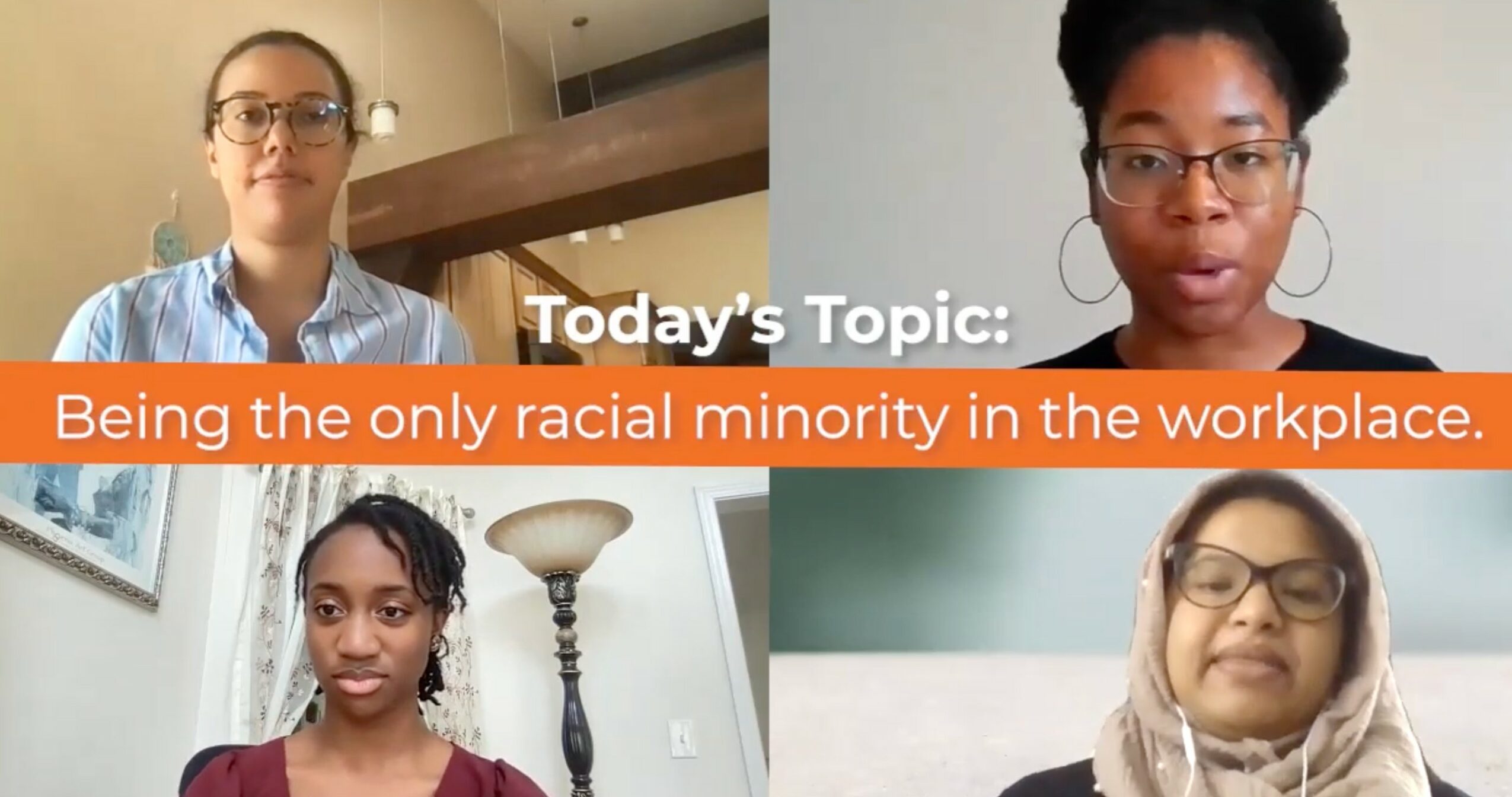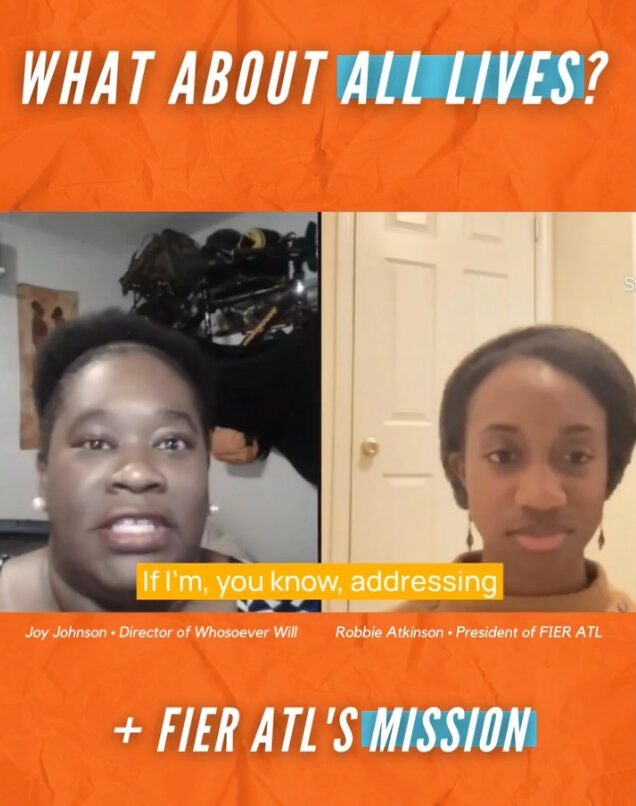
Today we’d like to introduce you to Robbie Atkinson.
Alright, so thank you so much for sharing your story and insight with our readers. To kick things off, can you tell us a bit about how you got started?
Honestly, FIER (pronounced “fire”) was not something that I expected to start. The inspiration that spurred its creation was actually really sudden but I’ve come to realize that the need for its presence has always been pressing. In fact, one year before we filed the paperwork for FIER, I had barely even begun settling into RPX Media Production, my for-profit start-up, and we still didn’t quite have a steady flow of revenue coming in for that either.
Nonetheless, when George Floyd’s murder was plastered all over the news, I suddenly witnessed a myriad of heated debates about race and racial tension erupt across the nation and knew that something like FIER needed to exist. The topic of police brutality unveiled one of the many raw wounds within the Black community and likewise, I began to see other Minority communities come forward as they shared the grim reality of what they were really experiencing behind platitudes and pleasantries. I saw friends suddenly start sharing their experiences from hospitals, school, work–several of which literally broke down crying as they recounted scenarios that all centered on some form of traumatic encounter with discrimination or racism. What was worse was the fact that none of this was new–it had been happening all along and it somehow still seemed to take the world by surprise.
For example, one friend told me about how the hospital staff ignored her Black mother’s concerns about feeling weak after surgery–they simply brushed her off as “lazy” when it turned out she was actually weak from bleeding internally for several hours. Another friend told me about how she was denied her epi-pen at a local hospital and her throat began to close up. It wasn’t until other white patients went to the desk clerk and insisted on her behalf that they finally handed it over. In short, a second “Me Too” movement was taking place and what was actually more shocking than the stories that people were sharing was the response from other people and communities.
In response to the social climate of 2020, I saw people react with callous denial and down-right gaslighting, stating that “things were not that bad” or that “people should stop complaining and be grateful”…my favorite comment was, “I’ve never seen that before so it couldn’t possibly have happened.” Some people responded with resentment saying that they wouldn’t support the another community because they were bullied by their students when they were in school. Other people, including public figures who profited from appropriating culture, refused to release statements or speak out against the brutality at all and that was just as damaging as the gaslighting and brutality. Downtown Atlanta I personally witnessed military tanks line major streets and watched online as my friends went to protest and crumbled under the tear gas that was thrown at them. Then, with the COVID19 pandemic, the Asian community began experiencing a 339% rise in hate crimes against them. I had friends telling me that they were afraid to walk from their work building to their car. There was this painfully familiar trauma that many communities shared while one was also saying to the other “welcome to the club–see what we’ve been saying?”
Personally, I have a diverse friend group so our discussions ranged from alarming to empathetic–with some insisting that Black people “could have handled this better” and some international (specifically Korean & Chinese) friends asking what the root cause of this commotion really was and how they could help. From the latter, I realized that trying to explain this in Mandarin and Korean was an eye-opening experience for me all on its own. Overall, the situation was an entirely chaotic frenzy. So much pain rose to the surface of America’s public discourse and it honestly made every day of 2020 exhausting.
So, one day I stepped back and sat down to process everything going on as I did a bit of research: I thought about the friends who wanted more insight but didn’t have the historical context available in their language. I thought about the friends who were too exhausted and hurt to explain anything. I thought about the friends who didn’t feel comfortable asking questions but wanted to know more and help. I thought about the bystanders who were “neutral” or in denial of the country’s social climate. Then, I thought about the people who had lived in America and experienced some type of trauma from racism that left them embittered and cynical of other communities around them. After a while, I began to conceptualize the idea of FIER–the Foundation for Inter-Ethnic Restoration.
I wanted FIER to be an organization that offered a safe space for all racial communities to meet and share their experiences without fear of being gaslit while equally giving them the opportunity to address and overcome their existing racial trauma. In addition, I dreamed of FIER being an organization that could improve mutual understanding of other communities’ lived experiences [cultural, historical and social] in order for them to be better allies to one another. FIER would ultimately be an inclusive space to learn and grow together to improve our society.
Alright, so let’s dig a little deeper into the story – has it been an easy path overall and if not, what were the challenges you’ve had to overcome?
I would be lying if I told you this has been a smooth process for me. Both personally and technically, I’ve had to adjust, pivot, re-evaluate and grow a lot in order to learn to balance both of my start-ups. RPX is a for-profit while FIER is a non-profit; thus making the approach to grow them both very staunchly different. I’d say that adjusting to their differences and managing both in conjunction with major life events have been my most formidable obstacles.
With regards to their differences, specifically learning how to manage them both has been quite a challenge because both are contingent upon our ability to highlight or relay a story; however, the approach to relaying stories differs. FIER is focused on more mental health, psychology and sociology subjects. It’s also backed by a team of academic researchers that are all highly educated and hail from different parts of the globe. Our volunteers have come from India, Turkey, China, Nigeria, Mexico and the US. Likewise, everything from the communication style to standard operating procedure required for FIER differs from what I do for RPX which is comprised of a smaller all-American team specialized in film production. Realizing that alone was a journey for me!
Furthermore, I’d say that I had a reckoning with making time for life events, family and rest in general in 2021. Although FIER was founded in 2020, we didn’t actually start building a team until May 2021. By September of 2021, my Dad had suddenly passed away from an illness that he’d been struggling with for many years–he and I were very close. He was always incredibly supportive of my endeavors for both FIER and RPX and he even helped me interview FIER’s first generation of volunteers. A week after he’d passed away, I was both numb and in agony. Around that time, I had the opportunity to do a presentation on the importance of Diversity and Homogeneity at Keuka College and I found myself wondering what to do. I could have chosen not to go through with it but my Dad, even until his death, insisted that my Mom and I not let things fall apart if anything should happen to him. He literally told my Mom to “grieve and move on.” So, it didn’t feel right for me to allow all my progress with both start-ups to come to a halt when he believed so adamantly in their ability to be successful and influential. I ended up doing the presentation and, from that, we received our first intern. In that instance, I was able to push through my fatigue and pain but I quickly learned that that doesn’t always work.
I think part of my biggest struggle last year was the realization that I had not been leaving much room for rest in my day-to-day schedule. It was my first year balancing two start-ups at the same time and riding out the ebbs and flows of them both was brutal. Likewise, I was both overwhelmed by the work that both start-ups required while equally feeling like I had to be disciplined enough to muscle through the work if I expected to see any growth on either front. So, my mindset and behavior were both fixed in a state of perpetual work to the extent that it was actually much harder to let myself rest than it was, in the words of Dory from Finding Nemo, “to just keep swimming.”
Consequently, when my Dad passed, the grief coupled with fatigue of maintaining both entities hit me all at once. I felt a gradual crash and burn imminent but managed to endure that year. Since then, I have resumed activities for both entities with my new schedule–which includes more rest days and room to breathe.
Can you tell our readers more about what you do and what you think sets you apart from others?
The Foundation for Inter-Ethnic Restoration is a 501(c) 4 nonprofit organization comprised of a melange of experts, mental health professionals and volunteers all dedicated to providing an innovative approach to tackling racial trauma. Whether through mediation, discussion, or civic engagement, we strive for the betterment of our communities. Our mission is to bring ethnic communities together, address racial trauma, educate the public about racial literacy, and ultimately foster community engagement around these topics.
We’re different from other organizations in that we’re striving to bring many different communities together to ultimately learn together, exercise empathy, and be allies to one another all while confronting the stigmatized topic of race and the trauma that individuals experience in their life because of their race. My hope is that from FIER’s work, we’ll rear up a generation that is [socially, culturally and historically] aware, compassionate, and willing to push for the progress of other communities in solidarity as much as they push for themselves. I want FIER to help people overcome their trauma and recognize the humanity in one another while opening the eyes of those who are in denial or at least decrease the amount of people who are.
We’re currently utilizing a variety of approaches to achieve this from event-based fundraisers that integrate the arts along with guest speakers and advocates to even live streams with professionals who share insight about racial trauma and literacy. We recently had a live-stream where we discussed racial gaslighting with Angelique Davis, a Professor of Seattle University who has had her work featured in Vogue, BBC, Cosmopolitan and NBC News.
What makes you happy?
I thoroughly enjoy learning about other cultures and their corresponding communities. Having traveled abroad twice when I was in college (once to France in 2014 and again to South Korea in 2015) I found it to be a pleasant, eye-opening experience being immersed in a new environment. When you travel abroad, not only are you challenged to thrive using a different language, but your historical and social awareness are also shaken as you begin to understand events from another country’s perspective. In addition, you learn cultural mores and taboos that allow you to be more sensitive and compassionate to others–which in turn lets you form new bonds and friendships with people who come from different walks of life. The moment that I truly realized the impact of the latter-mentioned points stems from an unforgettable experience that I had while abroad in Seoul–specifically with a church brother and his Father in South Korea.
Before studying abroad, I was attending a Korean church and had a handful of colleagues who alerted their familial connections overseas prior to my arrival in Seoul–with the expectation that their hospitality would be extended to me. When I arrived, I met up with a mutual connection named Eun-Jeong at church who drove me around Seoul with his Dad. I did everything from visiting Gyeongbokgung Palace to wearing a hanbok and then we ended the day at KFC. The whole day, his Father quietly tagged along but, for the most part, he ignored me and didn’t say much to me. However, while sitting down at KFC, when the subject of Japan came up–his Dad’s demeanor suddenly changed. He then began to share the details of his upbringing as a child under Japanese imperialism. He shook his head in remorse and pain as he stared off into the distance while speaking. At that moment, I learned about an aspect of history that, with all my years in the American education system, had never once been mentioned to me before. I sympathized with his Dad and did my best to respectfully ask questions and engage with him. After our conversation, before parting ways with each other, Eun-Jeong’s Dad who had been distant and quiet the whole day, sheepishly approached me and asked that we take a picture together. I still have that picture to this day.
That encounter showed me the power of connecting with people from different walks of life by listening to their stories and trying to understand their lived experiences. I didn’t realize it at the time, but studying abroad and being a foreigner in someone else’ country forced me to learn racial literacy. I would say that traveling and learning from others is when I’m truly my happiest.
Pricing:
- FIER is currently looking for monthly donors to support our work.
-
Donations can be sent via mail: PO Box 429 Smyrna GA 30081 or through Paypal: Info.fieratlanta@gmail.com“
- FIER is currently looking for more mental health experts to assist our organization.
- FIER is currently looking for Sponsors to help fund our events, summits and conferences.
- FIER is currently looking for more collaborators for fundraisers and events.
Contact Info:
- Website: https://fieratlanta.org/
- Instagram: https://www.instagram.com/fieratlanta/
- Facebook: https://www.facebook.com/fieratlanta/
- Twitter: https://twitter.com/fier_atl
- Youtube: https://www.youtube.com/channel/UC6AS7gAmL9XjSMdnuInbgnQ
- Other: https://www.volunteermatch.org/search/org1192759.jsp




Image Credits:
FIER Up Community Dance Workshop graphic designed by Cruz Girl Media













